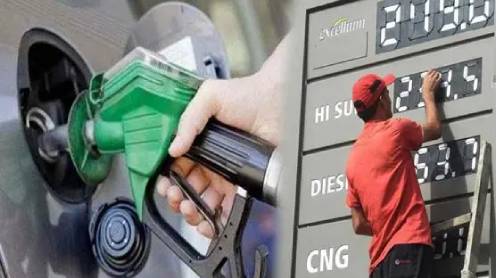KARACHI: The Oil Marketing Association of Pakistan (OMAP) has sought an immediate increase in the letters of credit (LCs) limits for oil marketing companies (OMCs), citing the country’s dire financial straits.
“The pressing concerns surrounding foreign exchange losses, OMC margins, sales tax, smuggling of Iranian diesel, infrastructure development cess, and the revision of the price mechanism have pushed this vital industry to the brink of collapse,” the association said in a letter to the petroleum minister, Musadiq Malik.
The oil body said the sector’s financial stability has been disrupted, and balance sheets bear the weight of these challenges with each passing day. “As a result, our credit lines have been severely impacted, making it increasingly challenging to conduct business with financial institutions. The stringent requirements imposed by banks have forced us to transition from the green list to the gray list.”
The OMAP stated that banks are not increasing the LCs limits for OMCs since these LCs limits are in rupees and, due to the increase in the exchange rate and international oil prices, the OMCs require an immediate increase in their approved limits.
“With conditions continuing to deteriorate, we are on the brink of moving from the gray list to the black list, which could prove catastrophic for the industry,” it added.
The letter pointed out that, as per the existing policy, ex-refinery prices of motor gas and high-speed diesel are determined on a fortnightly basis. “However, this mechanism has serious flaws, such as a lack of visibility regarding the benchmark tenure of LCs, unclear exchange rates used to calculate ex-refinery prices, and a few others.”
It proposed the implementation of a pool system to compensate OMCs for their verifiable foreign currency losses, a measure that would promote sustainability and fairness within the industry.
The OMAP drew attention to a significant disparity in the premiums applicable to Pakistan State Oil (PSO) compared with those available to other oil marketing companies.
“It’s crucial to highlight that PSO’s cargo volumes surpass those of its OMC counterparts due to its substantial market share.
This scale has enabled PSO to secure lower premiums compared to what other OMCs receive. This disparity has placed the industry at a disadvantage.”
“An analysis of the situation concerning Mogas reveals that an OMC with an average cargo size experienced a net loss of $2.30 per barrel over the last eight months of 2023 versus the premium secured by PSO. This translates to a substantial loss of Rs4.27 per liter, representing a staggering 71 percent of the prevailing OMC margin. OMAP also sought an upward revision in OMCs’ margins.”
OMAP anticipated the strengthening of the partnership between OMAP and the Ministry of Energy as they collaborate to fortify Pakistan’s energy sector.





